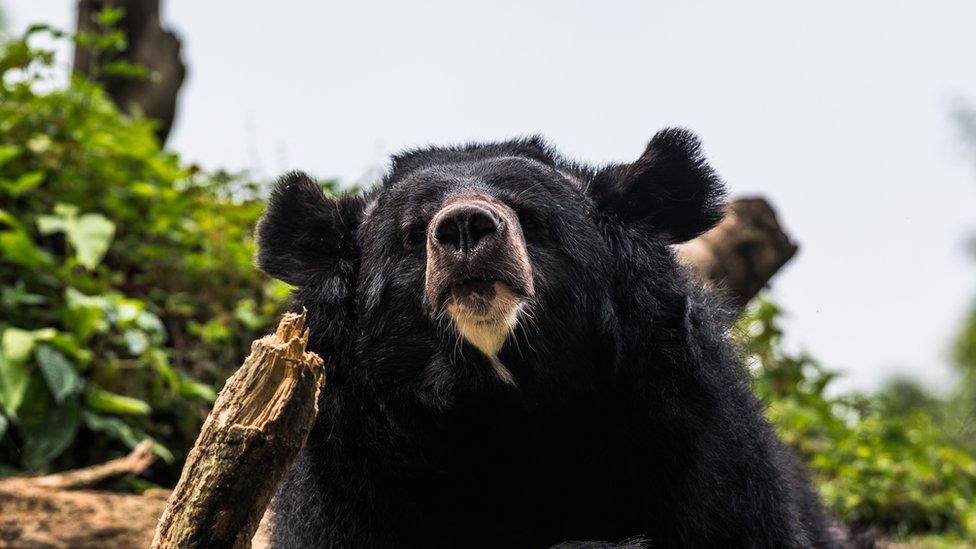Bear meat vending machine is a first for Japan
- Published

Bear meat is on offer at a vending machine in Semboku, Japan
Japanese vending machines, which offer whale meat, snails-in-a-can or edible insects, have a new dish on the menu: wild bear meat.
Different cuts of local black bear are sold from a vending machine in Semboku city, according to a Japanese daily.
Customers can buy fatty or lean meat for about 2,200 yen ($17; £13) per 250g, reports the Mainichi Shimbun, external.
Asiatic black bears are classed as internationally vulnerable. Japan says it limits numbers that can be hunted.
Run by local restaurant Soba Goro, the machine in Semboku in northern Akita prefecture reportedly sells 10-15 packs a week of meat from bears killed in nearby mountains by local hunters.
It runs out of stock if the hunting season is lean.
Japan has the world's highest number of vending machines per capita, located just about everywhere, from small alleyways to remote villages.
Commonly known as jidou hanbaiki or jihanki, they became popular in Japan back in the 1960s. They are a huge part of Japan's culture of convenience stores, and can overwhelm with their sheer volume and variety.
In January, controversy ensued when an unmanned outlet in the port town of Yokohama near Tokyo, set up three vending machines offering different varieties of whale meat for as little as 1,000 yen.
The vending machine in Semboku selling ursine options stands at the entrance to Tazawako station, where the country's famed Shinkansen or bullet train stops, as do other trains. And the meat is mainly purchased by visitors who arrive on the bullet train.
Licensed hunters are allowed to shoot and kill bears in Japan - but since the meat is considered a delicacy here, it's not on the table at the average Tokyo restaurant.
However, since the machine selling bear meat was installed last November, its operators say they have been getting inquiries from the Kanto region around Tokyo.
"[Bear meat] tastes clean, and it doesn't get tough, even when cold. It can be enjoyed in a wide range of dishes, from stew to steaks," a Soba Goro representative told the Mainichi.
Experts say that more bears have been leaving forests and entering cities in recent years because they're running out of food. They add that Japan's dwindling human population, especially in rural areas, has also been a factor - the animals are drawn to sparsely inhabited areas, posing a threat to locals.
Five bear attacks were reported in the northern Miyagi Prefecture between April and September 2022, with seven people injured.
It was the highest number of attacks since the prefectural government began keeping records in 2001.
According to the environment ministry, between 3,000 and 7,000 bears have been killed in the past seven years as encounters between humans and the animals have risen.
The government caps the number of black bears that can be hunted at 12% of their estimated population - there are thought to be about 15,000 in the country.
- Published1 April 2023